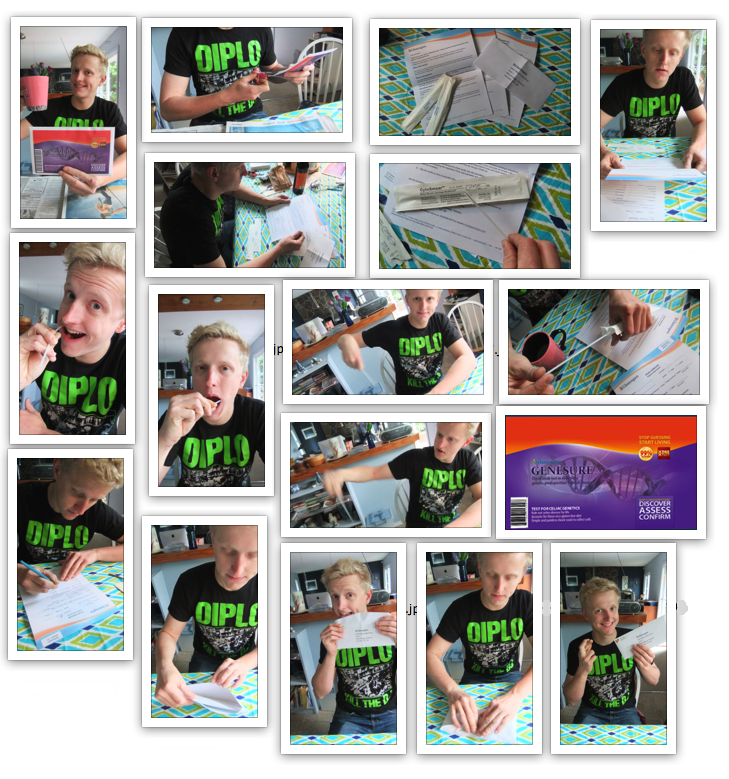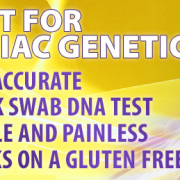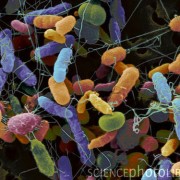Son of a Celiac! The Case for Genetic Testing!
I was diagnosed with celiac disease 13 years ago and ever since, my son Max has been worrying that he will one day have to ‘eat like me.’ He has reason to be concerned, not that I don’t love my gluten-free life, but according to leading celiac disease expert, Dr. Alessio Fasano, 8-15% of people with a first-degree relative with celiac disease will go on to develop it themselves. Study results presented at Digestive Diseases Week 2015 indicate that in families with a history of celiac disease – the most important factor is the genes they inherit from their parents.
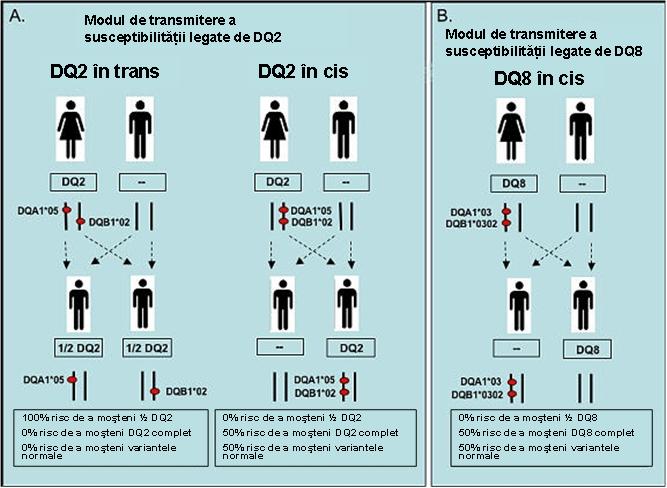
According to Daniel A. Leffler, MD, MS, Director of Research for The Celiac Center at Beth Israel Deaconess Medical Center in Boston, in order to develop celiac disease, a person requires a copy of HLA-DQ2 (including alpha and beta subunits) and possibly a copy of HLA-DQ8. The combinations of these markers determine the risk of developing the disease. Children with a double copy of HLA-DQ2 are considered to be at highest risk.
Because our genetic profile is permanent, a one-time test provides a clear lifetime genetic profile and offers insight into the chances of developing the disease. On the other hand, if a person does not carry HLA-DQ2 and HLA-DQ8 markers, it is virtually impossible for them to develop celiac disease. The test is therefore called negatively predictive.
In British Columbia the genetic test for celiac disease is covered under the Medical Services Plan, provided that a care provider feels there is an imperative for ordering the test. The cost to have the test done at one’s own expense ($500) has been prohibitive, until now.
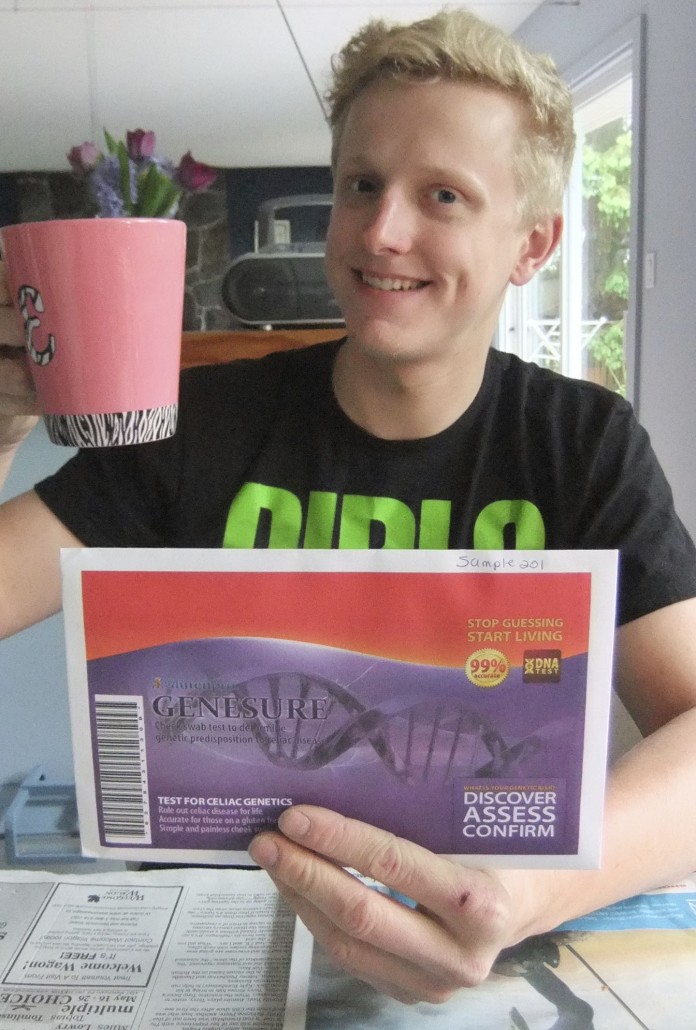 It is possible to undertake your own genetic testing with the GENESURE® from GlutenPro. Health Canada approved and 99% accurate, GENESURE is an easy-to-use home cheek swab test that collects your DNA. Receive your cheek swabs for cell collection, return to Glutenpro in the envelope provided and in approximately 2 weeks, your genetic profile is ready.
It is possible to undertake your own genetic testing with the GENESURE® from GlutenPro. Health Canada approved and 99% accurate, GENESURE is an easy-to-use home cheek swab test that collects your DNA. Receive your cheek swabs for cell collection, return to Glutenpro in the envelope provided and in approximately 2 weeks, your genetic profile is ready.
Who else could benefit from genetic testing?
- 1st degree relatives of definitively diagnosed celiacs who are too young for serological testing. A negative CELIAC GENESURE® could definitively rule out celiac disease. A positive CELIAC GENESURE® indicates a predisposition to develop the disease.
- Individuals who have undertaken the gluten-free diet but for whom a gluten-challenge (reintroducing bread, chapattis, pasta, biscuits or cakes in more than 1 meal every day for a minimum of 6 weeks before testing tTg and duodenal biopsy) is untenable. A negative CELIAC GENESURE® could definitively rule out celiac disease. A positive CELIAC GENESURE® indicates a predisposition to develop the disease.
- Individuals who test negative for celiac disease (serology and biopsy) yet continue to experience symptoms. A negative CELIAC GENESURE® could definitively rule out celiac disease. A positive CELIAC GENESURE® indicates a predisposition to develop the disease.
Back to Max! It was important enough for Max’s peace of mind to invest in the test ($190 + shipping and handling) and rule out the possibility of ever developing the disease. Three days after ordering the kit online, it arrived with information and easy to follow instructions. The pictures below show the sequence. After completing the form, Max used the small brush provided to swab the inside of one cheek for 20 seconds, waved it in the air to dry and then slid it back into its individual paper liner. Second swab, second cheek. The swabs and paperwork were sealed into the addressed envelope provided and one stamp later, the kit was on its way back to Glutenpro. Max’s fingers are crossed that the confidential results will bring positive or better yet, negative news!
Skip ahead to the following links:
Home Instructions for Genetic Testing by GENESURE®
Results of GENESURE® Cheek Swab Test for Celiac Disease Are In for ‘Son of a Celiac!’
